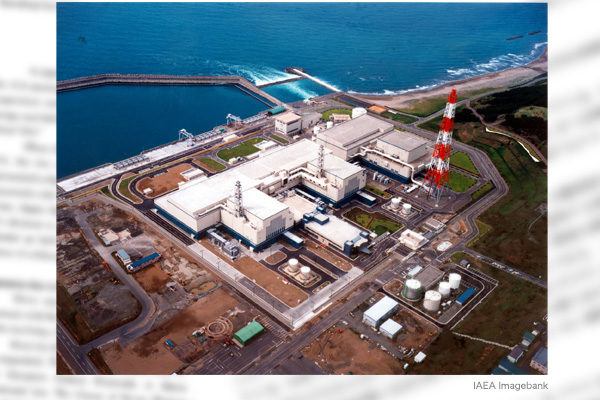The Nuclear Regulation Authority (NRA) on May 17 decided not to lift the de facto ban on the operation of Tokyo Electric Power Co.’s Kashiwazaki-Kariwa nuclear power station in Niigata Prefecture due to insufficient improvement in two of the six items required for improvement regarding counterterrorism measures.
Regulation by the NRA is similar to the past U.S. nuclear regulatory method that used strong regulatory authorities to impose sanctions on nuclear power plant operators even for minor defectives and severely damaged the operating performance of nuclear power plants.
Learn from U.S. regulatory conversion
The U.S. Nuclear Regulatory Commission (NRC) was established in 1975 by organizational reform and experienced a severe accident at Unit 2 of the Three Mile Island (TMI) nuclear power station in 1979. At the time, U.S. President Jimmy Carter entrusted Harold Denton, director of the Office of Nuclear Reactor Regulation at the NRC, with full authority and made him possible to promptly respond to the accident. Despite a core meltdown, the accident was brought under control by venting steam from the containment vessel. Although media reports on venting steam from the vessel caused a local panic, local radioactive contamination was prevented. This was in contrast to Japanese Prime Minister Naoto Kan’s interference in the responses to the Fukushima Daiichi Nuclear Power Station accident through TEPCO executives at the time of the Great East Japan Earthquake, which caused great confusion.
After the TMI accident, the NRC introduced a strict regulatory method called SALP (Systematic Assessment of Licensee Performance). It was a kind of nuclear reactor operators’ capability assessment scheme that scored each item in detail and imposed tough sanctions on nuclear power plants with low ratings. As a result, personnel and managers at nuclear power plants across the United States became demoralized, and many minor and major troubles occurred, greatly decreasing the operating performance and capacity factor of power plants throughout the United States.
The NRC came under fire from Congress and industry and faced a crisis of survival. At that time, the NRC seriously discussed how to improve its regulatory methods. The result was the current reactor supervision system called ROP (Reactor Oversight Process).
The secret was a shift from the “north wind” policy to the “sunshine” policy. Inspections of power plants with good performance were limited to essential items, while power plants with poor performance were given more inspections and guidance from the NRC on an equal footing. Inspections extracted riskier malfunctions that might affect operating performance and color-coded and published them for easy understanding. If the “report card” was good, the stock price of that power company would rise. The management honored high-performing employees so that the report cards might improve. By adopting Japan’s approach of raising employee morale by raising slogans such as “safety first” and “zero accidents,” better results were achieved, and the capacity factor of nuclear power plants across the United States rose to the 90% range.
Don’t demoralize plant operators
Incumbent NRA Chairman Shinsuke Yamanaka has been grilling TEPCO’s president harshly over the Kashiwazaki-Kariwa nuclear power station, demoralizing the company’s employees. The NRA suspended its screening of Unit 2 of Japan Atomic Power Co.’s Tsuruga nuclear power station in Fukui Prefecture after finding many mistakes in relevant documents, but a poor regulatory approach could induce mistakes on the part of power companies.
While power companies are primarily responsible for safety and anti-terrorism measures, the NRA also has supervising responsibilities. In sports games, if an inexperienced coach gives wavering orders to their players, he or she cannot draw players’ strength. Power companies’ efforts fail to work well because the NRA’s regulatory approach is poor. Japan should fundamentally reform the nuclear regulatory body, as seen in the United States.
Tadashi Narabayashi is a specially appointed professor at the Tokyo Institute of Technology and a director at the Japan Institute for National Fundamentals.


